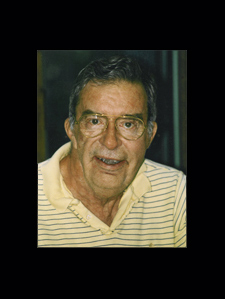 Dean S. Ammer, PH.D. (1926-1999)
Dean S. Ammer, PH.D. (1926-1999) Dean S. Ammer, PH.D. (1926-1999)
Dean S. Ammer, PH.D. (1926-1999)
Dean S. Ammer, Ph.D., is regarded by many as the father of healthcare materials management. A prolific author, he wrote frequently about the issues confronting the healthcare industry.
As a professor at Northeastern University (NU) in Boston, Massachusetts, he served first as Acting Director in 1961 and then Director for the Bureau of Business and Economic Research from 1962 onwards, taking the BBER towards even larger projects involving long-term international economic studies, automation studies and the publication of a monthly newsletter for businesses involved in the NU Cooperative Education program. The Bureau was created to “...make studies and conduct research into the problems of New England business development, expansion of the New England market for New England industry...and investigations into special problems of individual business concerns...” (NU Review, Nov/Dec. 1939, Vol. 1, No. 2).
Dr. Ammer developed his concepts for improving hospital purchasing and materials management from his work and early leadership to the BBER in the early 1960s. His efforts, writings and speaking engagements led to considerable management interest in purchasing effectiveness. In particular, he framed materials management as an organizational concept offering significant potential benefits to hospitals. He predicted that materials management would be viewed as a profit center for leading healthcare providers, and that new corporate positions would be created for materials managers. These supply chain executives would become a key part of the leadership for their organizations.
Dr. Ammer established and published “Hospital Purchasing Management” for many years as part of the activities of the Hospital Purchasing Institute, Inc., a healthcare consulting company he formed. The rationale for his Institute was based on the concepts of materials management advocated by Dr. Ammer. Specifically, his vision was that materials management should provide for the integration of related materials functions including purchasing, receiving, inventory control and management and distribution to provide cost-effective delivery of materials and services to customers throughout the organization.
Dr. Ammer’s education was in industrial engineering and economics. These fields gave him a solid foundation for his evaluation of trends and impacts on rising healthcare costs and provided the basis for one of his early books entitled:Hospital Materials Management – Neglect and Inefficiency Promote High Costs. Industry response to this treatise led Dean to actively promote hospital materials management as a profession. Dr. Ammer advocated that hospitals should centralize their purchasing, distribution and warehousing functions in a manner comparable to that followed by other industries to achieve operational efficiency. He recommended that hospitals should use standardized inventory control and receiving operations as a means to becoming more effective and efficient.
Although he died in late 1999, Dr. Ammer’s publications and influence are still quoted today as many of his early works captured the attention of hospital administrators as foundations for optimizing supply chain management performance.
What attracted and motivated Dr. Ammer to join the healthcare supply chain management field when he did?
Dean decided to apply his experience with industrial materials management to the healthcare field.
For what one contribution would Dr. Ammer like to be most remembered?
That’s a difficult question. Professionally I’d guess that he was most proud of teaching folks how to control costs without sacrificing value.
What is the one industry challenge Dr. Ammer would have liked to have seen solved in his lifetime?
Dean was always concerned about the high cost of medications and felt the drug industry should be better controlled. I suspect that this remains an ongoing challenge.